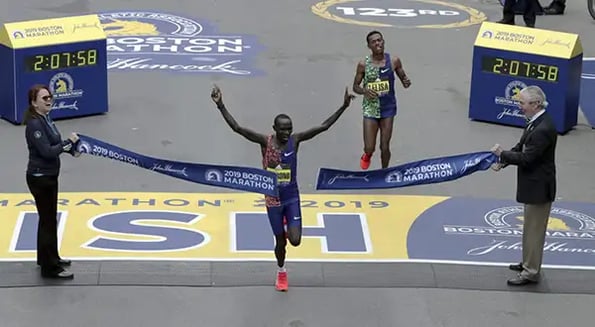When Duncan Kibet broke the tape at the 2009 Rotterdam Marathon, it came with a $280k payday, including a lucrative Nike contract.

For the Kenyan, it was life-changing money. But as the The New York Times writes, the post-running journey of professional marathoners is often fraught with financial insecurity.
A long road
A top finish at a major marathon can come with a big payout. Winning Dubai ($200k), Boston ($150k), London ($150k), or Chicago ($100k) can set up a Kenyan athlete for life.
But the money goes quickly: Many Kenyan runners use large portions of their winnings to support family members and pay for schooling. Others fall prey to faulty investments, land title scams, and exploitation schemes.
Benjamin Limo, of the International Association of Athletics Federations, estimates that as many as 75% of Kenya’s former top marathon runners live in unsustainable conditions — and half are “really struggling.”
This is a problem for most athletes
Kenyan runners’ plight is particularly rough since 53% of the country lives below the poverty line. But this post-career struggle is common for American athletes too: It has been estimated that as many as 60% of NBA players are broke within 5 years of leaving the league.
A mounting financial literacy movement looks to change this. Though runners like Kibet, now 40 years old and broke, would say the change is long overdue.

